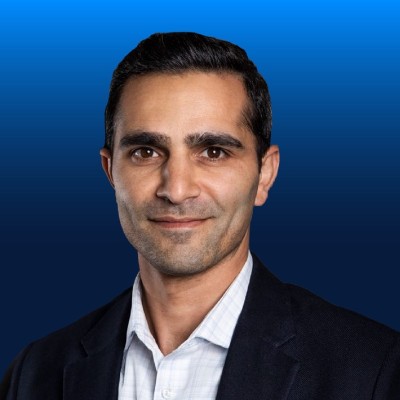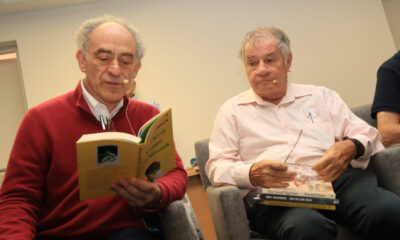
OpEds

Lead from the front with just your smartphone
The year 2024 will be remembered as the year that opened people’s eyes. The average person is so confused when it comes to geopolitical affairs, it has become difficult to share our point of view on matters that ultimately affect our life and our children’s future.
But instead of feeling victimised, you should know that you have the power to create whatever future you desire. In Africa, I learned the phrase “ubuntu”, which means “I am because you are” – we’re all connected, and what’s happening on the other side of the world has an effect on me and vice-versa. In simple language, we know it as being aware of one’s thoughts, speech, and actions.
What’s happening in the geopolitical arena that affects global commerce, our ability to provide for our families, and the safety and security of our loved ones?
Is the global community on the brink of World War III due to authoritarian regimes and their relentless pursuit of power at all costs? Do we as average people on the street have the power to be the cause of world peace and a common future?
Let’s try to understand the forces behind the global situation.
The common denominator among Russia, China, Iran, and other authoritarian regimes is their relentless desire to maintain power at all costs. This fixation on retaining control often leads to a disregard for the well-being and aspirations of their citizens, resulting in various domestic and international conflicts and crises.
In Russia, Putin’s regime is driven by fear of losing power, as is shown by its aggressive actions in Ukraine to prevent its drift towards the European Union. The Kremlin’s narrative revolves around preserving Russian influence and preventing the spread of Western ideals that could threaten Putin’s grip on power.
Similarly, the aspirations of the Islamic Republic of Iran – as articulated by its leader, Ayatollah Ali Khamenei – to spread Islam globally, has profound implications not only for its own citizens, but for the broader international community. Khamenei’s declared desire to export the Islamic revolution underscores Iran’s commitment to promoting its version of political Islam beyond its borders, often at the expense of stability and peace in the region. Sadly, the resources expended on exporting the revolution divert attention and funds away from addressing domestic challenges such as economic stagnation, social inequality, and political repression.
This pattern of authoritarian leadership which prioritises personal interests over the greater good of citizens has profound implications for global stability. In South Africa, the ruling African National Congress appears to be following a similar path of prioritising its interests over those of the people, underscoring the universality of this phenomenon. When leaders become more concerned with retaining power than serving the greater good, the consequences are dire for democracy, human rights, and global stability.
The conflicts in Ukraine and the Middle East, as well as China’s expanding influence in Africa, and Iran’s extremist Islamic jihadist ideology which transforms peaceful societies into terror hubs, are symptomatic of a world where autocratic regimes pursue power and resources with little regard for the consequences.
Does the average person on the street have the power to influence the outcome? Can we be the cause rather than the effect?
In times of uncertainty and challenge, the role of community leaders and media influencers becomes even more crucial in shaping the narrative and fostering positive change. Today, anyone with a smartphone can lead from the front, reaching out with a heartfelt appeal to stand together and advocate for a common future built on education, equality, and the development of a society that thrives on shared values and acceptance of diversity.
We’re living in a world where the voices of division and hatred often seem louder than those advocating for unity and progress. However, it’s precisely in these moments that our collective voice must rise above the noise, echoing the values of inclusivity, respect, and understanding.
As brothers and sisters for ubuntu, community leaders, and media influencers, you possess a unique platform and influence that can spark meaningful conversations and inspire action among your audience and congregation.
I urge readers to use their platforms to encourage followers and listeners to stand firm for a society in which everyone, regardless of their background, culture, or region, is treated with dignity and respect.
I implore you to join me in rallying our communities and audiences around the common values that bind us together. Let’s demonstrate that the real power lies in our unity and unwavering dedication to create a better world for generations to come.
Be the cause rather than the effect.
- Daniel Yakcobi is the chief operations officer of the SA – Israel Chamber of Commerce.








